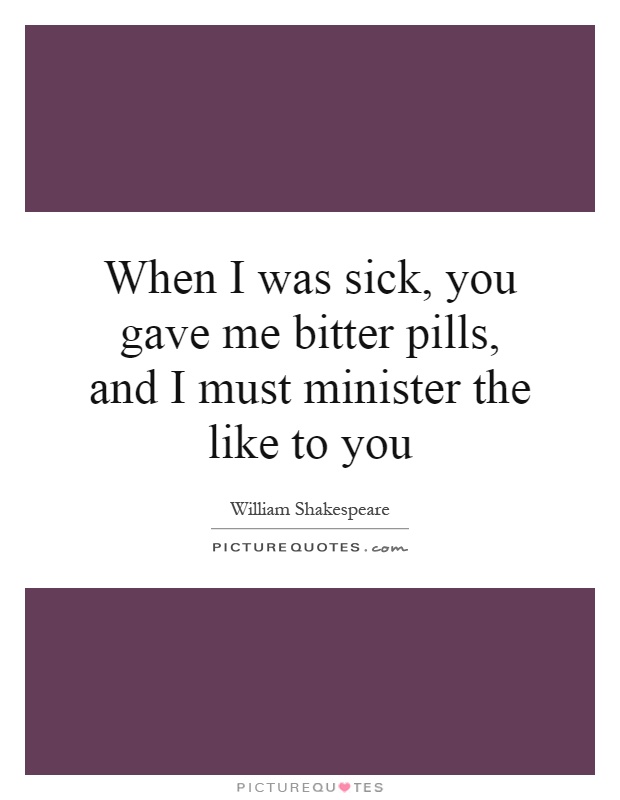When I was sick, you gave me bitter pills, and I must minister the like to you

When I was sick, you gave me bitter pills, and I must minister the like to you
The line "When I was sick, you gave me bitter pills, and I must minister the like to you" is from William Shakespeare's play, "Hamlet". This quote is spoken by the character Laertes in Act 4, Scene 7, as he confronts King Claudius about the death of his father, Polonius. Laertes is expressing his anger and desire for revenge against Claudius for his role in his father's death.The use of the metaphor of bitter pills in this quote is significant as it symbolizes the harsh truth that Laertes must now face. Just as he was given bitter pills to swallow when he was sick, he must now administer the same bitter medicine to Claudius. This metaphor highlights the idea of justice and retribution, as Laertes seeks to make Claudius suffer for his actions.
The quote also reflects the theme of betrayal and deception that runs throughout the play. Claudius's betrayal of Polonius and his manipulation of Laertes ultimately lead to tragic consequences for all involved. Laertes's words convey his sense of betrayal and his need for vengeance, as he seeks to right the wrongs that have been done to him and his family.
Furthermore, the quote can also be interpreted as a commentary on the cyclical nature of revenge and violence. Just as Laertes seeks revenge on Claudius for his father's death, he in turn becomes consumed by his own desire for vengeance. This cycle of violence and retribution is a central theme in "Hamlet", as characters grapple with the consequences of their actions and the impact of their choices on those around them.
Overall, this quote from "Hamlet" encapsulates the themes of justice, betrayal, and revenge that are central to the play. It serves as a powerful reminder of the consequences of deceit and manipulation, and the destructive nature of seeking vengeance. Shakespeare's use of metaphor and imagery in this quote adds depth and complexity to Laertes's character, as he grapples with the harsh realities of his situation and the choices he must make in order to seek justice for his father.












 Friendship Quotes
Friendship Quotes Love Quotes
Love Quotes Life Quotes
Life Quotes Funny Quotes
Funny Quotes Motivational Quotes
Motivational Quotes Inspirational Quotes
Inspirational Quotes